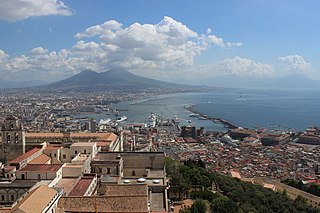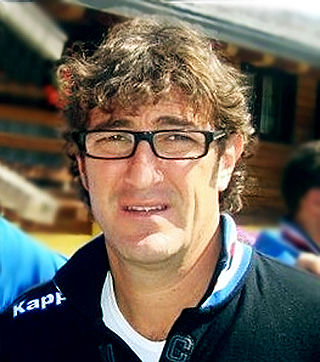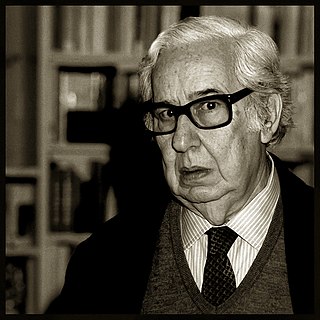
The Venice Film Festival or Venice International Film Festival is an annual film festival held in Venice, Italy. It is the world's oldest film festival and one of the "Big Five" International film festivals worldwide, which include the Big Three European Film Festivals, alongside the Toronto International Film Festival in Canada and the Sundance Film Festival in the United States. These festivals are internationally renowned for giving creators the artistic freedom to express themselves through film. In 1951, FIAPF formally accredited the festival.

Naples is the regional capital of Campania and the third-largest city of Italy, after Rome and Milan, with a population of 909,048 within the city's administrative limits as of 2022. Its province-level municipality is the third-most populous metropolitan city in Italy with a population of 3,115,320 residents, and its metropolitan area stretches beyond the boundaries of the city wall for approximately 30 kilometres. Naples plays also a key international role in international diplomacy, since it is home to NATO's Allied Joint Force Command Naples and of the Parliamentary Assembly of the Mediterranean.

Ciro Ferrara is an Italian former footballer and manager. Ferrara spent his playing career as a defender, initially at Napoli and later on at Juventus, winning seven total Serie A titles as well as other domestic and international trophies.

During World War II the Italian city of Naples suffered approximately 200 air raids by the Allies from 1940 to 1944; Milan was the only Italian city attacked more frequently. Almost all of the attacks — a total of 181 — were launched in the first nine months of 1943 before the Four days of Naples and the Allied occupation of the city at the beginning of October. Estimates of civilian casualties vary between 20,000 and 25,000 killed.

Raffaele La Capria was an Italian novelist and screenwriter.

Line 6 is a 5.5-kilometre (3.4 mi) light metro line that forms part of the Naples Metro. The four-station first part of the line opened in 2007, but was then closed from 2013 to 2024. It was reopened for service and extended to eight stations on 17 July 2024.

Gennaro Di Giacomo was an Italian drummer and singer.

Michele Prisco was an Italian journalist, critic, and novelist.

Banco di Napoli S.p.A., among the oldest banks in the world, was an Italian banking subsidiary of Intesa Sanpaolo group, as one of the 6 retail brands other than "Intesa Sanpaolo". It was acquired by the Italian banking group Sanpaolo IMI in 2002 and ceased being an independent bank. In February 2018, Intesa Sanpaolo announced their new business plan, which would retire Banco di Napoli and other brands; the legal person of Banco di Napoli would be absorbed into Intesa Sanpaolo S.p.A.
Fondazione Bologna University Press (BUP) is an associate publisher of the University of Bologna in Italy.

Angelo Cannavacciuolo is an Italian writer and director.
Banca Popolare di Bari S.C.p.A., now BdM Banca, is an Italian bank based in Bari, Apulia region. The bank covered most of mainland Italy, except Piedmont and Liguria, and all the autonomous regions of Italy: Aosta Valley, Trentino – South Tyrol, Friuli – Venezia Giulia and the islands of Sardinia and Sicily.

Giacomo Romano Davare is an Italian writer, actor, stage director and teacher.
Annalaura di Luggo is a multimedia artist and film-maker based in Naples.

The Manuel Rojas Ibero-American Narrative Award is an annual award given in honor of the author of Hijo de ladrón by the National Council of Culture and the Arts of Chile.
The Premio Gregor von Rezzori, also known as the Premio Gregor von Rezzori-Città di Firenze, is a literary prize awarded at the annual Festival degli Scrittori in Florence, Italy.

Chiara Valerio is an Italian author and essayist.
The Cantelli Award recognizes excellence in conducting. The prize was first awarded on October 3, 1961. The awards were hosted at the Teatro Coccia, in Novara, where also all the other editions were hosted. The prestigious prize was won, among others, by Ádám Fischer, Lothar Zagrosek, and Riccardo Muti, who was the first Italian to win the prize. Many winners of the prize went on to become prominent conductors.

Alessandro Triulzi is an Italian historian, Africanist and since 2011 Emeritus Professor of African History and former Vice Director of the African and Arab Studies Department at the Università degli Studi di Napoli "L'Orientale" at Naples. He studied Political Science at the Sapienza University of Rome for a Master's degree in 1966 and obtained a PhD in History at Northwestern University at Evanston, Illinois in 1981. Triulzi performed field work among the Ashanti people in Ghana (1969), and the Berta and Oromo people in Wallaga, West Ethiopia. He worked in Ethiopia, Sudan and Eritrea during 1970–1973, and again in Ethiopia during 1985–2005.

Elena Gianini Belotti was an Italian writer, teacher, and activist.














